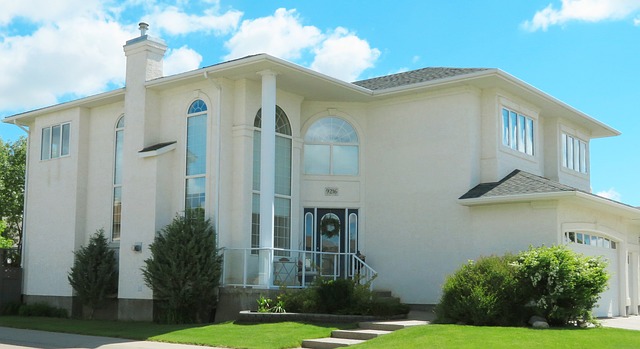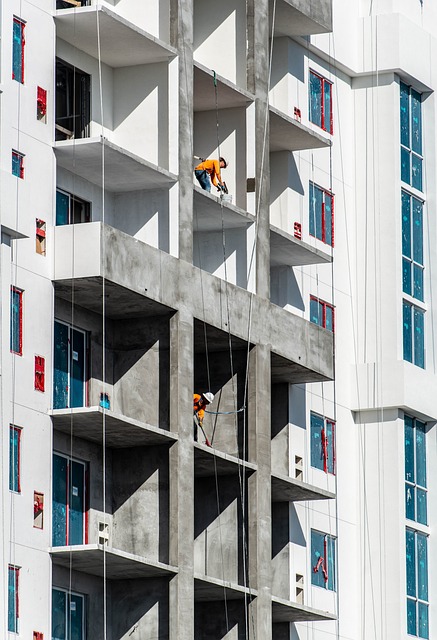Executive Condominiums (ECs) in Singapore cater to middle-income families as an affordable yet luxurious housing option, situated between public HDB flats and private condominiums. Prospective buyers must consider the specific eligibility criteria set by the government, including income limits and resale lease requirements, which are subject to change over time. The EC price is influenced by a range of factors such as location, development size, current property demand, and broader economic conditions. With the introduction of measures like the Mandatory Sale Scheme, the EC market's dynamics have shifted, reflecting a balance between affordability and investment value. Subsidies and grants for first-time homeowners, managed by the Housing & Development Board (HDB) and CPF Board, significantly reduce the cost burden, making ECs more accessible. Prospective buyers should analyze resale price trends, considering historical sales data, unit condition, available amenities, and location, while staying informed on market conditions and potential policy changes to make an educated decision on Executive Condominium Price. Understanding these factors is crucial for navigating the EC resale market effectively.
Executive Condominiums (ECs) in Singapore offer a unique blend of public and private housing benefits, designed for aspiring homeowners. This article demystifies EC eligibility, exploring the evolving policies that influence their pricing and what it takes to qualify for one. Whether you’re considering purchasing an EC or reselling, understanding the criteria, financial aid options like CPF Housing Grants, and market trends is crucial for making informed decisions. Dive into our comprehensive guide to navigate the EC landscape in Singapore, ensuring you stay abreast of price movements and eligibility requirements for this coveted housing type.
- Understanding ECs in Singapore: A Primer on Executive Condominiums
- The Evolution of EC Policies and Their Impact on Price
- Eligibility Criteria for Buying an Executive Condominium: Who Qualifies?
- Affordability and Subsidy Schemes: An Overview of Financial Assistance for EC Purchasers
- The Role of CPF Housing Grants in Enhancing EC Affordability
- Navigating the Resale Market: EC Price Trends and Resale Considerations
Understanding ECs in Singapore: A Primer on Executive Condominiums

In Singapore, Executive Condominiums (ECs) offer a unique housing option that blends the benefits of both public and private residential properties. These hybrid homes are designed for couples or families who may not qualify for public housing but cannot afford private condominiums. The eligibility criteria for ECs are tailored to provide affordable options for the middle-income group, with features and facilities akin to those found in private condos. Prospective homeowners interested in Executive Condominium Price points should consider the specific conditions set by the Singapore government, which include income limits and other qualifying factors. These conditions are subject to change, and it’s advisable for buyers to stay updated on the latest policies and pricing trends to make informed decisions. The pricing of ECs is influenced by various factors, including location, development size, and the current demand in the property market. As such, those eyeing an EC should assess their financial situation, taking into account the affordability of the units and the total cost involved, including any subsidies or grants available to first-time homeowners. Understanding the nuances of Executive Condominium Price and eligibility is crucial for potential buyers looking to navigate this dynamic segment of Singapore’s property market.
The Evolution of EC Policies and Their Impact on Price

The eligibility criteria for Executive Condominiums (ECs) in Singapore have undergone significant evolution over the years, reflecting the government’s efforts to align housing policies with the changing demographics and market dynamics. These changes have had a profound impact on the executive condominium price trends. Initially, ECs were designed to offer an affordable alternative for first-time homeowners, with a mix of public and private housing features. Over time, the income ceiling for eligible applicants has been adjusted, and the resale lease criteria have been tightened, influencing the supply and demand dynamics of these properties. These policy adjustments, coupled with broader economic factors, have influenced EC prices, often leading to an increase in executive condominium price points as they transition towards full private property status after a set period.
Moreover, the introduction of measures such as the Mandatory Sale Scheme and the En-bloc sale of mature estates has further shaped the EC market. These initiatives aim to prevent hoarding of EC units and ensure a steady turnover of homes, which in turn supports stable executive condominium price growth. The balance between affordability for aspiring homeowners and investment potential for property investors is a delicate one, and it is continuously monitored and adjusted through these policies. Prospective buyers interested in the latest EC prices should consider how these evolving eligibility criteria and market conditions have interplayed to shape current offerings and future prospects within this segment of the housing market.
Eligibility Criteria for Buying an Executive Condominium: Who Qualifies?

In Singapore, purchasing an Executive Condominium (EC) presents a unique opportunity for both singles and families to own a spacious and luxurious home at a price point that is more accessible than private condominiums. To be eligible to buy an EC, applicants must meet specific criteria set by the Housing & Development Board (HDB). As of the latest updates, singles must not exceed the MCCF income ceiling and must be first-time flat owners (or have applied for a flat). Married or engaged couples, including those intending to get married within 6 months, can apply with similar constraints on their income levels. Additionally, applicants must have savings of at least $15,000 in their Central Provident Fund (CPF) account. The EC price point is designed to cater to the needs of middle-income families, with prices typically lower than those of private condos but higher than HDB flats, offering a balance between affordability and the benefits of living in a condominium. It’s also important for prospective buyers to consider the resale levy and other associated costs when evaluating the EC price to ensure it aligns with their financial planning. Potential homeowners interested in an EC should assess their eligibility based on these criteria and consult the official guidelines for any updates or changes to the rules.
Affordability and Subsidy Schemes: An Overview of Financial Assistance for EC Purchasers

In Singapore, the dream of owning an Executive Condominium (EC) is made more accessible through a suite of affordability and subsidy schemes designed to assist EC purchasers. These financial assistance measures are pivotal for individuals and families looking to navigate the property market with cost effectiveness in mind. Prospective buyers can benefit from the Housing & Development Board (HDB) grants, which include the CPF Housing Grant (CHG) and the Additional CPF Housing Grant (AHG), catering to different income tiers. The CHG and AHG are particularly valuable as they directly reduce the purchase price of the EC, making it more affordable for eligible applicants. Furthermore, the grant quantum is tied to the EC’s price, ensuring that the assistance aligns with the market value. Additionally, the government’s Scheme of Funding the Downpayment (SFOD) provides further support by funding up to 5% of the EC’s purchase price, or $30,000, whichever is lower. This initiative lessens the financial burden at the point of purchase and aids in the long-term savings strategy for homeowners. The harmonized income ceiling for these subsidies ensures that more Singaporeans have the opportunity to own an EC, which serves as an alternative housing option between a public flat and a private condominium, offering the benefits of both worlds. Prospective EC purchasers are encouraged to assess their eligibility and explore these financial assistance options to determine the most suitable path towards home ownership.
The Role of CPF Housing Grants in Enhancing EC Affordability

In Singapore, the affordability of Executive Condominiums (ECs) is significantly bolstered by the CPF Housing Grants. These grants serve as a vital financial aid for first-time homeowners, offering subsidies that can offset a substantial portion of the EC price. For eligible applicants, the grants can cover a sizeable amount, making ECs more accessible to younger couples and individuals who are looking to own their first home. The CPF Board administers these grants, which are designed to help with the downpayment or monthly mortgage payments, thereby reducing the financial burden on homeowners. This initiative is instrumental in ensuring that the dream of homeownership remains attainable for a larger segment of the population, even as the prices of Executive Condominiums continue to rise in line with property market trends in Singapore. Prospective buyers should explore their eligibility for these grants when considering an EC purchase, as they can significantly impact the overall cost and affordability of the property.
Navigating the Resale Market: EC Price Trends and Resale Considerations

When considering a purchase within Singapore’s resale executive condominium (EC) market, potential buyers should be well-versed in the prevailing price trends to make informed decisions. The resale prices of EC units have shown resilience and growth over time, reflecting their popularity as a housing option among both singles and families. Prospective buyers often look at past sales data and current market conditions to gauge the value of an EC. It’s advisable to analyze recent transactions of similar-sized units in comparable neighborhoods to establish a fair market price. Additionally, factors such as the unit’s age, condition, amenities, and location can significantly influence resale prices. As these properties start off as new developments and later become eligible for resale after satisfying the five-year minimum occupation period, understanding the maturity of the EC can also impact its valuation.
Beyond price trends, potential buyers must consider other factors that affect resale value. The balance between supply and demand in the resale market plays a crucial role; an oversupply or a shift in buyer preferences can lead to fluctuations in prices. Moreover, changes in government policies, such as eligibility criteria for purchasing ECs, can also impact resale prices. Prospective buyers should keep abreast of any updates from the Singapore government that might affect their decision to buy an EC on the resale market. By considering these factors alongside executive condominium price trends, buyers can navigate the resale market with a clearer understanding of the value and potential investment return of their purchase.
In conclusion, navigating the landscape of Executive Condominiums (ECs) in Singapore requires a clear understanding of the eligibility criteria and the evolving policies that influence their price. Prospective homeowners should be well-versed with the conditions set forth by the Housing & Development Board (HDB), including income ceilings, age limitations, and the five-year minimum occupancy period before one can sell the EC on the open market. The financial assistance available, such as CPF Housing Grants, plays a pivotal role in making ECs an attainable housing option for eligible couples and families. It’s crucial for potential buyers to assess their eligibility and financial capabilities, considering the affordability of EC Price options and the resale market trends. By understanding these factors, individuals can make informed decisions that align with their long-term housing goals in Singapore’s vibrant property landscape.



